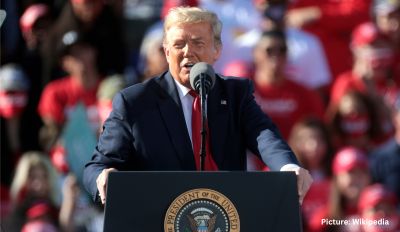The United States gave its approval on Thursday for a significant $4 billion transaction involving cutting-edge drones destined for India, a move aimed at bolstering India’s military capabilities vis-à-vis China. This approval comes after a delay attributed to an alleged plot to assassinate a Sikh separatist leader on US soil.
This sale signifies a notable shift in India’s procurement strategy from its traditional reliance on Russian arms, which have increasingly faced scrutiny due to sanctions stemming from Russia’s actions in Ukraine.
The discussions regarding the drones began during Prime Minister Narendra Modi’s state visit last year, at the invitation of President Joe Biden. These talks gained urgency against the backdrop of skirmishes between India and both China and Pakistan.
Following extensive deliberations with US lawmakers and Indian authorities, the State Department formally notified Congress about the sale, comprising 31 MQ-9B Sky Guardians, the most advanced variant of General Atomics’ Predator drones.
According to a statement from the State Department, “The proposed sale will improve India’s capability to meet current and future threats by enabling unmanned surveillance and reconnaissance patrols in sea lanes of operation.” It further asserted, “India has demonstrated a commitment to modernizing its military and will have no difficulty absorbing these articles and services into its armed forces.”
While India has historically enjoyed bipartisan support in the US Congress, the sale encountered a setback following allegations by US prosecutors of a plot to assassinate a Sikh separatist leader with US citizenship on American soil. The Justice Department went as far as to allege remote direction of the plan by an Indian government official.
India responded to these allegations with a more measured approach compared to its vehement reaction to similar accusations by Canada in the past. However, some US lawmakers questioned the seriousness with which both the Modi government and the Biden administration addressed these allegations, leading to a temporary halt in the informal approval of the sale.
Despite this, observers anticipate that Congress will not obstruct the sale within the 30-day window it has to do so. Michael Kugelman, director of the Wilson Center’s South Asia Institute, commented, “The notification gets the sale back on track, but it could still encounter some choppy seas in Congress. The assassination allegations against India continue to cast a shadow over US-India relations.” He added, “Strategic imperatives tend to carry the day in this partnership, and that will likely ensure the sale eventually goes through, but one can’t rule out the possibility of some hiccups during the finalization process.”
Regarding the approval process, Randhir Jaiswal, a spokesman for India’s foreign ministry, stated that the United States was following its “internal processes,” refraining from further elaboration.
The drones in question, Sea Guardians, possess the capability to monitor seas, submarines, and remain airborne for up to 35 hours, equipped to fire Hellfire missiles and carry approximately 1,000 pounds (450 kilograms) of bombs.
India’s navy has been operating two Predator drones on lease, utilizing them to monitor the Arabian Sea, safeguarding ships from potential threats posed by Yemen’s Huthi rebels and Somali pirates.
In 2019, India made headlines by conducting airstrikes in Pakistani airspace, marking a departure from past precedents. Additionally, tensions along the Himalayan frontier between India and China, the two most populous nations globally, have been escalating, highlighted by a deadly clash in 2020 that claimed the lives of 20 Indian troops and at least four Chinese soldiers.
Despite concerns expressed by some US lawmakers regarding Modi’s human rights record, US policymakers generally view India as a strategic partner due to shared apprehensions about China.











